
The Prix Goncourt is a prize in French literature, given by the académie Goncourt to the author of "the best and most imaginative prose work of the year". The prize carries a symbolic reward of only 10 euros, but results in considerable recognition and book sales for the winning author. Four other prizes are also awarded: prix Goncourt du Premier Roman, prix Goncourt de la Nouvelle, prix Goncourt de la Poésie (poetry) and prix Goncourt de la Biographie (biography). Of the "big six" French literary awards, the Prix Goncourt is the best known and most prestigious. The other major literary prizes include the Grand Prix du roman de l'Académie française, the Prix Femina, the Prix Renaudot, the Prix Interallié and the Prix Médicis.
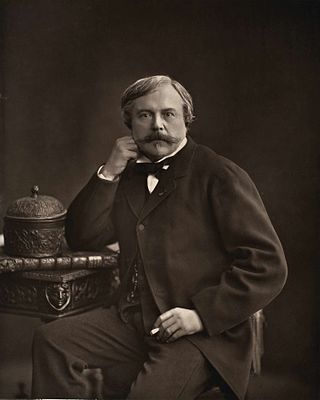
Edmond Louis Antoine Huot de Goncourt was a French writer, literary critic, art critic, book publisher and the founder of the Académie Goncourt.

Amin Maalouf is a Lebanese-born French author who has lived in France since 1976. Although his native language is Arabic, he writes in French, and his works have been translated into over 40 languages.

Michel Tournier was a French writer. He won awards such as the Grand Prix du roman de l'Académie française in 1967 for Friday, or, The Other Island and the Prix Goncourt for The Erl-King in 1970. His inspirations included traditional German culture, Catholicism and the philosophies of Gaston Bachelard. He resided in Choisel and was a member of the Académie Goncourt. His autobiography has been translated and published as The Wind Spirit. He was on occasion in contention for the Nobel Prize in Literature.

Jean-Marie Gustave Le Clézio, usually identified as J. M. G. Le Clézio, of French and Mauritian nationality, is a writer and professor. The author of over forty works, he was awarded the 1963 Prix Renaudot for his novel Le Procès-Verbal and the 2008 Nobel Prize in Literature for his life's work, as an "author of new departures, poetic adventure and sensual ecstasy, explorer of a humanity beyond and below the reigning civilization".
The Société littéraire des Goncourt, usually called the Académie Goncourt, is a French literary organisation based in Paris. It was founded in 1882 by the French writer and publisher Edmond de Goncourt (1822–1896), who wanted to create a new way to encourage literature in France and disagreed with the contemporary policies of the Académie Française.

Tahar Ben Jelloun is a Moroccan writer who rose to fame for his 1985 novel L'Enfant de sable. All of his work is written in French although his first language is Darija. He has been nominated for the Nobel Prize in Literature.
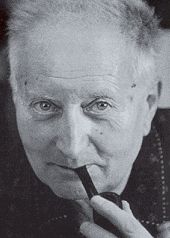
Jean Giono was a French writer who wrote works of fiction mostly set in the Provence region of France.

Hervé Bazin was a French writer, whose best-known novels covered semi-autobiographical topics of teenage rebellion and dysfunctional families.
Ernest Pérochon (1885–1942) was a French writer who won the Prix Goncourt in 1920 for his novel Nêne. Initially a teacher, he left his career in education in 1921 to pursue writing. He wrote poems, novels, as well as children's literature.
Jean Cayrol was a French poet, publisher, and member of the Académie Goncourt born in Bordeaux. He is perhaps best known for writing the narration in Alain Resnais's 1955 documentary film, Night and Fog. He was a major contributor to the subversive, philosophical French publication Tel Quel.
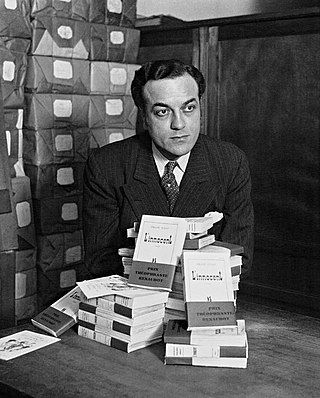
Raymond Gérard Payelle, better known by his pseudonym Philippe Hériat, was a French novelist, playwright and actor. His most famous novels included Les Enfantes gâtés, awarded the Prix Goncourt in 1939, and La Famille Boussardel, which won the Académie Goncourt in 1949.
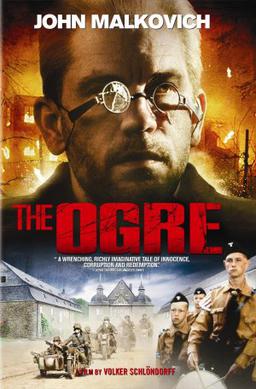
The Ogre is a 1996 French-German-British war drama film directed by Volker Schlöndorff and starring John Malkovich, Gottfried John, Marianne Sägebrecht, Volker Spengler, Heino Ferch, Dieter Laser and Armin Mueller-Stahl. It was written by Jean-Claude Carrière and Schlöndorff, based on the novel The Erl-King by Michel Tournier. The story follows a simple man who recruits children to be Nazis in the belief that he is protecting them.
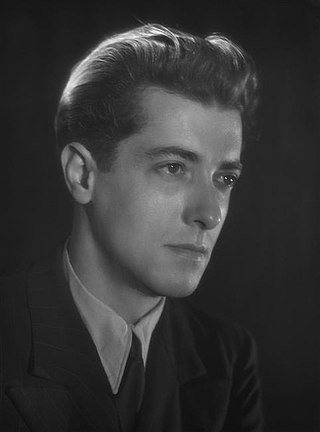
Jean-Louis Curtis, pseudonym of Albert Laffitte, was a French novelist best known for his second novel The Forests of the Night, which won France's highest literary award the Prix Goncourt in 1947. He is the author of over 30 novels.
Éditions Grasset is a French publishing house founded in 1907 by Bernard Grasset (1881–1955). Grasset publishes French and foreign literature, essays, novels and children's books, among others.

La Maternelle is a Prix Goncourt winning novel by French author Léon Frapié. It was adapted to film as La Maternelle (1933). It is a kind of autobiographical novel by proxy since its author used not his own memories, but those of his wife, Leonie Mouillefert, whom he married in 1888. The story is about Rose, an educated girl from a well off family who faces a series of tragic events that leaves her penniless and without a home. She is forced to find work as an attendant at a day-care center in Paris with 150 children of the working class. Despite working below her station she finds herself tenderly caring for them and soon they become very fond of her.

Pierre Gamarra was a French poet, novelist and literary critic, a long-time chief editor and director of the literary magazine Europe.
Gamarra is best known for his poems and novels for the youth and for narrative and poetical works deeply rooted in his native region of Midi-Pyrénées.

Three Strong Women is a 2009 novel by French writer Marie NDiaye. It won the 2009 Prix Goncourt, France's most prestigious literary award. The English translation by John Fletcher was published in April, 2012, in the UK by MacLehose Press, and in August, 2012, by Knopf in the USA.
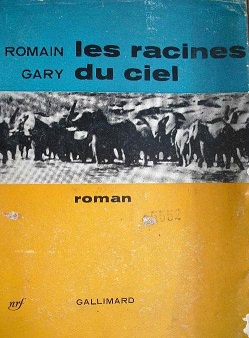
The Roots of Heaven is a 1956 novel by the Lithuanian-born French writer and World War II aviator, Romain Gary. It received the Prix Goncourt for fiction. It was translated into English in 1957.

Yann Moix is a French author, film director and television presenter. He is the author of ten novels and the recipient of several literary prizes. He has directed three films. He was a columnist on On n'est pas couché.
















